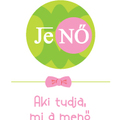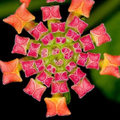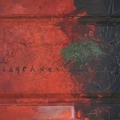Moramee R. Das - about books.

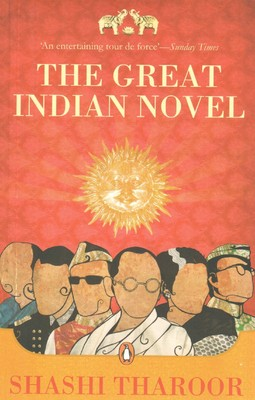
Shashi Tharoor:
The Great Indian Novel
The Great Indian Novel is a satirical novel by Shashi Tharoor. It is a fictional work that takes the story of the Mahabharata, the epic of Hindu mythology, and recasts and resets it in the context of the Indian Independence Movement and the first three decades post-independence.
Figures from Indian history are transformed into characters from mythology, and the mythical story of India is retold as a history of Indian independence and subsequent history, up through the 1980s. What I like about the novel is the way the both stories are blended with humor, satire & it captures the reader’s interest till the end.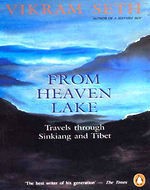
Vikram Seth: From Heaven Lake
One of the most revered works of the versatile Vikram Seth; From Heaven Lake follows the writer and travel enthusiast hitchhiking from China into India through Sinkiang and Tibet as a young graduate. From Heaven Lake is more than a travelogue and anybody even subtly versed with Seth’s colourful works would not expect any different or less. After completing his post graduation in Nanjing University in China, Seth decided to traverse his way back hitchhiking to Delhi, his hometown. On his way he made the acquaintances of several interesting, socially relevant and colourful characters. All of this greatly helped threading together this travelogue in a fashion that most other travel books cannot.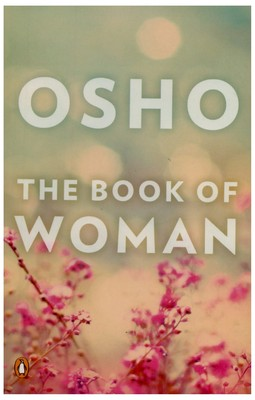
Osho: The Book of Woman
'A woman has to be loved, not understood' as very well said by Osho. In this book he has tried to unravel the mysteries of woman (although it can't be done totally) in the way only he can do. Her femininity, grace, sexuality, aspiration, anatomy, dreams, mind and even the liberation movement has been touched upon in this book. A good book I suggest although I agree with some of his points I disagree with some of his other points too.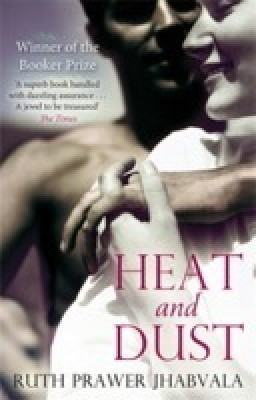
Ruth P. Jhabvala: Heat and Dust
Heat and Dust is a complex narrative by Ruth Prawer Jhabvala, and it has two parallel stories.
The narrator comes to India to find out about the scandalous past of her step-grandmother, Olivia.
The narrator’s life is set in the post-colonial era, while Olivia’s life is set in the British Raj. Olivia was married to the narrator’s grandfather Douglas during the British Raj. She feels choked with the British social restrictions and longs for indepen- dence. Olivia is attracted to the Nawab of Khatm and starts a passionate relationship with him. She kicks up a furore in the town of Satipur, though, once she gets pregnant with the Nawab’s baby. The narrator is curious to understand Olivia’s motivation behind her actions, and she puts together Olivia’s life, and her experiences in India. Both the stories are based in different times in India, and the profound impact of India on both the characters is strongly portrayed. Heat and Dust has also been adapted into a movie, which was released in the year 1983 and was critically acclaimed.
Heat and Dust - trailer:
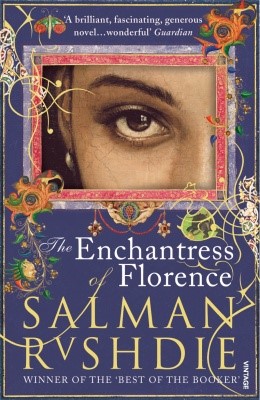
Salman Rushdie: The Enchantress of Florence
The Enchantress of Florence is the story of a mysterious woman, a great beauty believed to possess the powers of enchantment and sorcery,
attempting to command her own destiny in a man’s world. It is the story of two cities at the height of their powers–the hedonistic Mughal capital, in which the brilliant emperor Akbar the Great wrestles daily with questions of belief, desire, and the treachery of his sons, and the equally sensual city of Florence during the High Rena- issance, where Niccolò Machiavelli takes a starring role as he learns, the hard way, about the true brutality of power.
Profoundly moving and completely absorbing, The Enchantress of Florence is a dazzling book full of wonders by one of the world’s most important living writers.




















